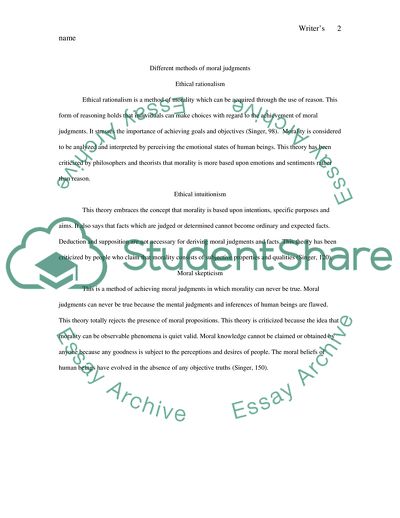Cite this document
(Is Empiricism the Primary Method of How Moral Judgements are Made Assignment Example | Topics and Well Written Essays - 1250 words, n.d.)
Is Empiricism the Primary Method of How Moral Judgements are Made Assignment Example | Topics and Well Written Essays - 1250 words. https://studentshare.org/philosophy/1716470-is-empiricism-the-primary-method-of-how-moral-judgements-are-made
Is Empiricism the Primary Method of How Moral Judgements are Made Assignment Example | Topics and Well Written Essays - 1250 words. https://studentshare.org/philosophy/1716470-is-empiricism-the-primary-method-of-how-moral-judgements-are-made
(Is Empiricism the Primary Method of How Moral Judgements Are Made Assignment Example | Topics and Well Written Essays - 1250 Words)
Is Empiricism the Primary Method of How Moral Judgements Are Made Assignment Example | Topics and Well Written Essays - 1250 Words. https://studentshare.org/philosophy/1716470-is-empiricism-the-primary-method-of-how-moral-judgements-are-made.
Is Empiricism the Primary Method of How Moral Judgements Are Made Assignment Example | Topics and Well Written Essays - 1250 Words. https://studentshare.org/philosophy/1716470-is-empiricism-the-primary-method-of-how-moral-judgements-are-made.
“Is Empiricism the Primary Method of How Moral Judgements Are Made Assignment Example | Topics and Well Written Essays - 1250 Words”. https://studentshare.org/philosophy/1716470-is-empiricism-the-primary-method-of-how-moral-judgements-are-made.


